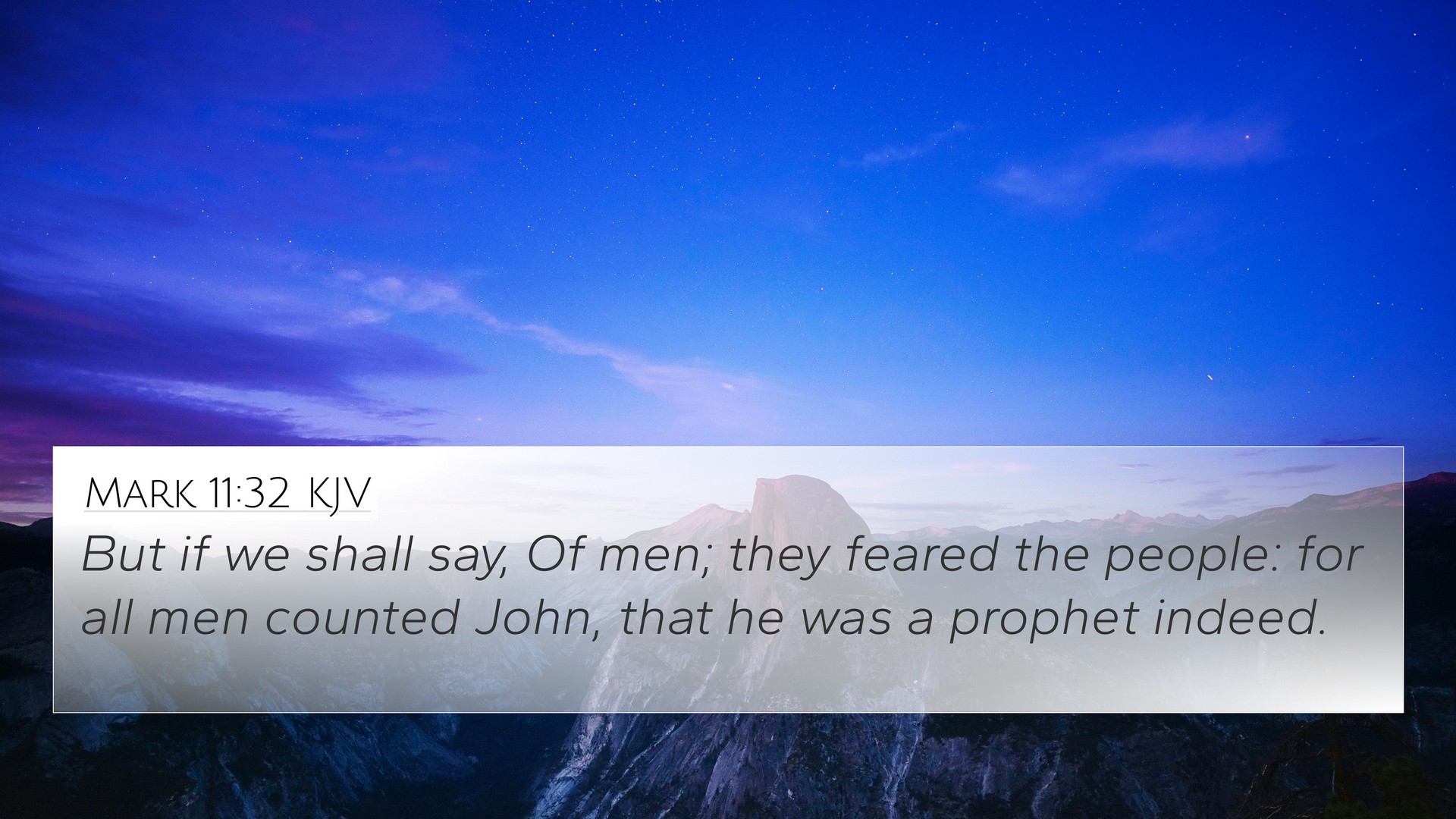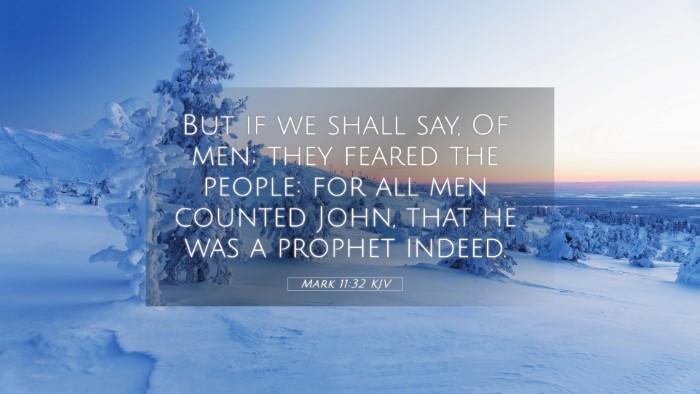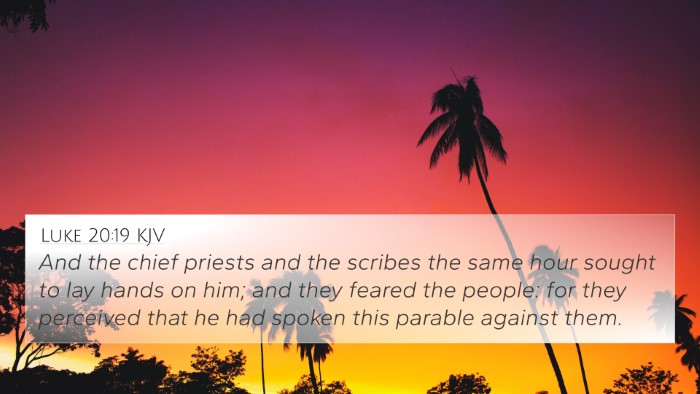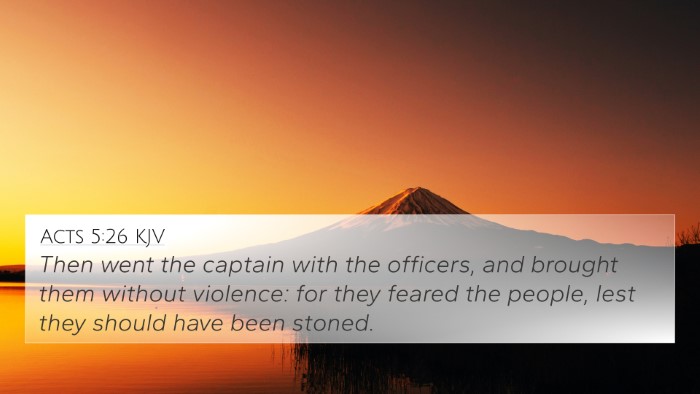Understanding Mark 11:32
Mark 11:32 poses a significant inquiry concerning the nature of authority and the prophetic witness of John the Baptist. This verse is integral to discussions about biblical authority and the connections between different scriptural texts.
Verse Context
In Mark 11:32, Jesus is being questioned about the source of His authority. The religious leaders are hesitant to answer Jesus' question regarding John's baptism because it could either affirm John's divine authority or expose their own failings. This situation highlights a critical aspect of scriptural cross-referencing: the interplay between prophetic voices and the acknowledgment of authority in God’s kingdom.
Commentary Insights
According to Matthew Henry, this verse exemplifies the conflict between divine authority and human influence. The religious leaders, caught in their own dilemma, represent those who challenge God's work when it doesn't align with their expectations. Henry emphasizes that an honest acknowledgment of the truth often yields God's favor, suggesting that understanding this verse requires examining our own willingness to recognize divine truth.
Albert Barnes adds that the Pharisees' fear of public opinion illustrates a broader human tendency to avoid responsibility. Their refusal to answer denotes a fear that sometimes drives believers to reject the truths presented in scripture for fear of societal backlash. Barnes highlights that this should encourage readers to seek genuine connections between their faith and the challenge of confessing it publicly.
Adam Clarke elaborates further on the implications of this verse for understanding prophetic authority. Clarke notes that the authorities’ question is loaded and reveals their insincerity. He insists that the authority of scripture must be viewed through the lens of divine purpose and truth, indicating that understanding Mark 11:32 requires a deeper engagement with the thematic connections across biblical narratives.
Key Themes and Connections
- Authority and Prophecy: The relationship between Jesus' authority and John's prophetic role is central to understanding this verse.
- Public Opinion: The fear of man often hinders acknowledgment of spiritual truths.
- Truth Recognition: Engaging with scripture requires a willingness to recognize and accept difficult truths.
Bible Cross-References
Mark 11:32 can be cross-referenced with several key verses that relate to its themes:
- Matthew 21:25 – Discusses John’s authority, aligning with the inquiry posed in Mark 11:32.
- Luke 20:5 – Highlights the similar predicament faced by the religious leaders when questioned about John.
- John 1:22-23 – Addresses the identity and authority of John the Baptist.
- Matthew 3:11-12 – Describes John's baptism and its divine significance.
- Mark 1:4 – Introduces John's role as a preparer of the way.
- Acts 19:4 – Paul references John's baptism in connection with believers; a later commentary on the authority of baptism.
- Hebrews 11:32-34 – Illustrates the historical context of faith, linking past prophets to Jesus' ministry.
Conclusion
Mark 11:32 serves as a potent reminder of the challenges associated with recognizing divine authority amidst human opposition. By understanding the connections between various Bible verses associated with authority, prophecy, and recognition of truth, readers can deepen their engagement with scripture. Tools for Bible cross-referencing and thematic analysis not only enrich one's understanding of individual verses but also illuminate the inter-Biblical dialogue that shaped early Christian beliefs.
Supplementary Resources
For a comprehensive study of connections between Bible verses, consider using tools such as:
- Bible concordances
- Bible cross-reference guides
- Cross-reference Bible study methods
Engaging deeply with the Bible offers insights into how verses like Mark 11:32 resonate throughout scripture. These studies are vital for anyone aiming to connect historical truths with contemporary faith practices.















